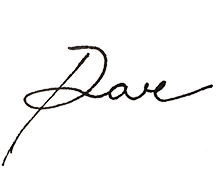So… what is coaching? What are some of the many benefits of being a recipient of coaching, and why is coaching so popular today?
Does coaching really offer so many great benefits, which is why it’s so popular today?
Or is coaching really just a trend or a fad resulting from the ease by which seemingly anyone can just call themselves “a coach” in the Internet age?
In this post, I’ll help you clarify your understanding of what coaching is by giving you some popular definitions that simplify this somewhat tricky concept.
First, I should introduce myself! My name is Dave Ursillo and as a writing coach and leadership coach, I’ve helped more than 300 clients unlock their potential for self-actualization since 2012.
From authoring their first books to transforming long-standing wounds into new sources of strength and resilience, launching new businesses from scratch (or after accomplished careers), and much more, I believe that working with a coach is one of the most transformational tools available to us today.
“Coaching” is something that many people are increasingly familiar with, but most struggle to define what coaching is.
So what is coaching and why does coaching matter?
What Is Coaching? Popular Definitions
Coaching is defined as a process that aims to improve the performance, focus, and capacities of clients while unlocking their long-term potential for success and achieving immediate goals in business, relationships, and beyond.
While coaches are a dime a dozen these days, a good coach is a skilled facilitator and professional guide who, rather than telling you what to do or how to do it, creates possibility and potential by expanding your outlook, highlighting self-limiting habits and unhelpful beliefs, and clarifying your personal and professional goals at this time.
A coach is a professional peer and dedicated partner who holds compassionate space for you to stay accountable to your dreams and desires while helping you smoothly navigate the unpredictable bumps and detours along life’s journey.
Here are some more popular definitions to help you clarify and simplify the definition for yourself.
Definition #1: Coaching is “a method of achieving set goals”
The International Mentoring Group defines coaching as “a method of achieving set goals.” Simple enough, right?
They go on to also add that a coach is someone who uses dialogue or conversations to help a coachee (in other words, a client) “correctly set a goal” and “to find the best way to achieve the goal.”
According to this definition, coaches don’t just abide by what their clients say their goals are; a coach’s job is to help their clients clarify and define their goals so as to ensure that they are on a path of purpose and meaning for themselves.
Finally, this definition concludes by suggesting that a coach has the added task of helping the client to “reveal [their] hidden inner potential.”
This means that coaches also help clients to realize what they are capable of achieving and accomplishing, so it’s not just about the goals, but helping the human being believe in themselves and challenge their own self-limiting beliefs.
Definition #2: Coaching is “a process of reflection through dialogue” that builds self-awareness to make the changes you want
Personal-Coaching-Information.com offers a definition that implies less of a set “method” for developing and achieving goals through coaching, as above.
Instead, it suggests that coaching is itself a more organic and fluid process that “allows an individual or group of people to reflect and gain awareness of who they are, what is important to them, their strengths, challenges, options open to them.” In other words, coaching isn’t about following a road map.
Coaching is a matter of entering into an open process through which dialogue, self-reflection, and inquiry help clients develop deeper and stronger self-awareness, first and foremost.
By assessing one’s own strengths and values, and questioning what matters most to the client, coaching helps clients decide “what action to take in order to make the changes they want in their work or life.”
Most importantly is the manner by which coaching dialogue helps clients develop their self-awareness, or by “providing a safe, creative and non-judgmental space,” including “asking thought-provoking questions” and “listening to help the coachee explore, reflect and make decisions.”
Definition #3: Coaching is “a professional relationship that helps people produce results” by bridging “the gap between where they are now and where they want to be.”
The Institute for Life Coach Training affirms that coaching is specifically a professional relationship, not a personal one, in which a coach helps clients “produce extraordinary results.”
Like the definitions above suggest, this definition also confirms that coaching is about producing results, achieving goals, and setting higher bars for success in one’s life.
As for the kinds of goals that coaching can help someone achieve, they can include goals throughout clients’ “lives, careers, businesses, or organizations.”
Coaching exists to help clients “gain clarity around who they want to become” or find more meaning and purpose in their life. Then, a coach uses encouragement, accountability, and skill-building to help motivate clients “to create a plan and take action.”
What are the Common Themes of Coaching?
Based on the definitions of coaching above, we can safely conclude that every definition of coaching has some common themes, including:
- Coaching is a professional relationship
- Coaching exists to help clients realize and unlock their full potential
- The process or method of coaching is one that uses conversation, dialogue, and talking to develop the client’s awareness and clarity for one’s motivations and goals
- Coaching leans heavily upon goal-setting and planning to help clients gradually achieve what they want most in work, life, relationships, and beyond
- Self-awareness, personal responsibility, and accountability are key themes to coaching
I hope this helps you clarify your own understanding of what coaching is and how to define it for yourself!
If you are an aspiring coaching client, take a look at some of my own coaching offers to see my own definitions of coaching and how I frame my coaching approach to future clients.
If you are a coach, yourself, remember to define coaching for you and to find the best methods for helping your clients to know themselves and achieving their own goals in life, both inside and out.
Happy coaching!

